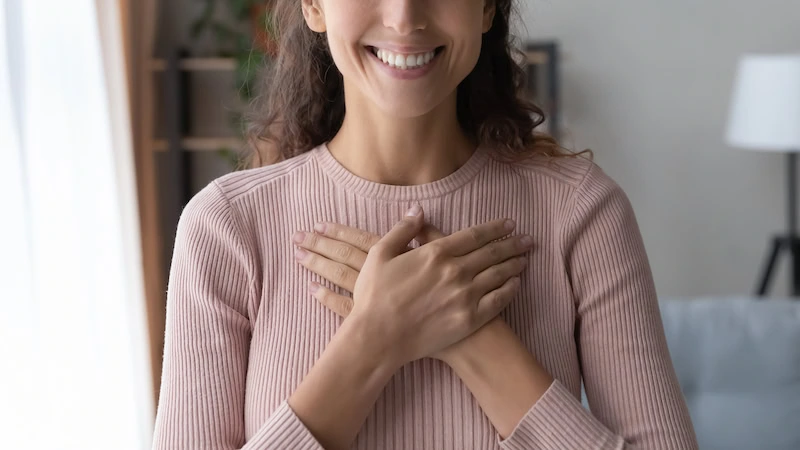Addiction recovery is multifaceted. Often, it involves changing and healing parts of your life other than addictive behaviors alone. For this reason, you might wonder: what does recovery look like? This is a question everyone overcoming drug and alcohol abuse might answer differently. Align Recovery Centers provides trauma-informed, whole-person care for addiction and co-occurring mental health concerns. Our team is here to help you find out what recovery looks like for you.
What Does Recovery Look Like?
What does recovery look like? Although it is something you can define for yourself, there are common parts of the experience most people can agree on or relate to. Learning to celebrate all of the markers of recovery you notice can help you stay motivated.
Abstinence From Drugs and Alcohol
Abstinence (refraining from the use of substances) is a primary goal for people with substance use disorders. Sustained abstinence is a major marker of recovery. As time goes on, your brain and body start to recover from the effects of drugs and alcohol. These health improvements are likely to have a positive impact on other aspects of your life.
Identifying and Processing Emotions
Although it’s a more internal part of recovery, many people going through the process find that identifying and processing emotions is integral to overcoming addictive behaviors. Learning to cope with negative feelings without drugs and alcohol is about more than refraining from substances; it involves the development and implementation of new coping skills and reactions to stressors.

Increased Self-Awareness
Increased self-awareness can be vital for making the behavioral changes you want to make as you recover from addiction. Examples of what this looks like could include identifying your triggers, greater accountability, noticing when a situation is not healthy for you, or knowing when to ask for support.
Life and Interpersonal Skills
Life and interpersonal skills can be core components of a successful recovery. For instance, in addition to using coping strategies for emotions, recovery can involve learning to utilize effective communication and problem-solving skills.
Future Goals and Approaching the Next Stage(s) of Life
Once you achieve initial sobriety, setting future goals and approaching the next stages of life can be critical parts of what recovery looks like. For example, building healthy relationships, starting a new job, moving forward in your career, or going back to school.
Personalized and Integrated California Addiction Treatment
Providing personalized and integrated California addiction treatment, Align Recovery Centers is here to walk you through each stage of the recovery process. We offer the following programs and are here to help you find your unique pathway to lasting sobriety.
Detox
Those exploring how to start the recovery process will often find that detox is a crucial first step. People at risk of moderate to severe withdrawal symptoms may require medical detox services. Our luxury detox in California uses advanced monitoring technology for withdrawal symptoms that lets you sleep through the night. Medications and other treatments are provided as needed until your symptoms subside.
Inpatient
Our inpatient treatment program in California is a transformative 30-day experience. Days begin with breakfast at 8:00 AM, followed by groups, individual therapy sessions, and other treatments. Clients are taken on 3-5 supervised outings per week, which will consist of 12-step meetings, wellness walks, and one fun activity. The structured nature of this program is designed to help you establish sustainable routines that support long-term recovery from addiction.
Partial Hospitalization Program
The partial hospitalization program (PHP) at Align is an outpatient therapy program for people in addiction recovery. Rather than live on campus for the duration of the program, PHP clients are able to stay at home or in sober housing while getting substance abuse therapy at our center throughout the week.
Virtual Care
The virtual care options at Align let you get quality addiction therapy from the privacy of your own home. Virtual sessions through our center help clients, their family members, and our team of experts stay in close contact during the recovery process.
Call Align Recovery Centers for Effective Addiction Recovery Programs in California
Align Recovery is a compassionate space for people recovering from substance use disorders to get the comprehensive care necessary for whole-person healing. We’re here to help you or your loved one find lasting sobriety. Please call Align Recovery Centers for effective addiction recovery programs in California today at 1-707-899-1996.
Frequently Asked Questions (FAQs)
What are the stages of change in addiction recovery?
According to the transtheoretical model (TTM), the stages of change include the precontemplation, contemplation, preparation, action, and maintenance phases. TTM is a commonly applied framework for people overcoming concerns like substance abuse and other addictive or maladaptive behaviors. Some people cite relapse as a possible sixth stage. While not everyone will relapse during the recovery process, it is a common occurrence that can be used as an opportunity to learn more about yourself, ultimately serving your long-term recovery.
What percentage of people with substance use disorders recover?
If you or someone you know is struggling with addiction, you will be glad to find that most people facing substance use disorders recover. Among adults surveyed in the National Survey on Drug Use and Health (NSDUH) who perceived that they ever had a problem with their use of drugs or alcohol in 2024, 74.3 percent considered themselves to be in recovery or to have recovered.
What are the four dimensions of recovery, according to SAMHSA?
The Substance Abuse and Mental Health Services Administration (SAMHSA) has delineated four major dimensions that support a life in recovery. These include:
- Health (overcoming or managing one’s disease, making choices that support one’s physical and mental well-being).
- Home (a safe, stable place to live).
- Purpose (meaningful activities, such as work, school, or volunteering).
- Community (positive social connections).
Although these parts of life can look different from person to person, even among those in addiction recovery, they’re often core elements of a person’s quality of life and healing journey.
What is the definition of addiction recovery?
People going through the addiction recovery process may define recovery in different ways. Some view abstinence from drugs and alcohol as the key defining factor in addiction recovery, whereas others may emphasize factors like handling negative emotions without using substances.
